Sejal Sutaria died on March 12, 2025, at the age of 51. She is preceded by her father Vinod Sutaria and is survived by her mother Hansa Sutaria and her sister Nina Sutaria Shah. Her mother was by her side when Sutaria passed in Ahmedabad, India after complications from sarcoma.
Sejal taught as a visiting assistant professor of English at Grinnell from 2018-2023. While her focus was on global modernism in the English Department, she also taught classes in sound studies, disability studies and human rights literature.
“She was very warm and light, but also deep. It’s not a warmth and lightness that’s superficial,” Assistant Professor Viktoria Pötzl, German studies, said. “It’s very foundational and grounding.”
As I try to find the words to describe her — kind, curious, compassionate, determined, hopeful — I can finally understand why modernism was so fascinating to Sejal. One of the themes of modernism deals with making sense out of fragmented memories, of feeling like the whole is immeasurable.
These pieces of Sejal can never hope to become more than the sum of their parts. But maybe that’s the point.
Warmth, curiosity and laughter
Sejal was one of my first professors during my first semester at Grinnell. She was also one of my last. Though I graduated in 2023, I’m returning to The Scarlet & Black to cherish these pieces of Sejal left behind.
No matter where Sejal went, she made deep friendships. But she didn’t just make them: she kept them. She allowed each friendship to have its own space to blossom. She didn’t just care about the people she knew directly, but she cared about the people they knew as well.
While Sejal was in graduate school at the University of Michigan, studying for her English Ph.D., she met Lara Peterson through a mutual friend. Peterson, a fellow graduate student, was studying natural resources management.
“Sejal was always up to do anything, and she was always up for an adventure. She was just somebody that you could always invite to do whatever,” Peterson said. “She cared about something you were doing and always was happy to join.”
“She went everywhere, she did everything. She knit my kids’ blankets. Like, I’m fully sighted and I can’t knit a blanket,” her sister, Nina Sutaria Shah, said. “She was just so amazing that way.”
Sejal went rollerblading, cross country running, skiing, jogging; she travelled to New York, Michigan, Massachusetts, Los Angeles, the United Kingdom; she loved to stay active. She loved to be active.
“She was very much able to find joy or look for the good, even when things were bleak. And I think she found miracles that way,” Sutaria Shah said.
When Sejal came to Grinnell, she met Pötzl. They were part of the same “monogamous friend group,” Pötzl said, while social distancing during the COVID-19 quarantine.
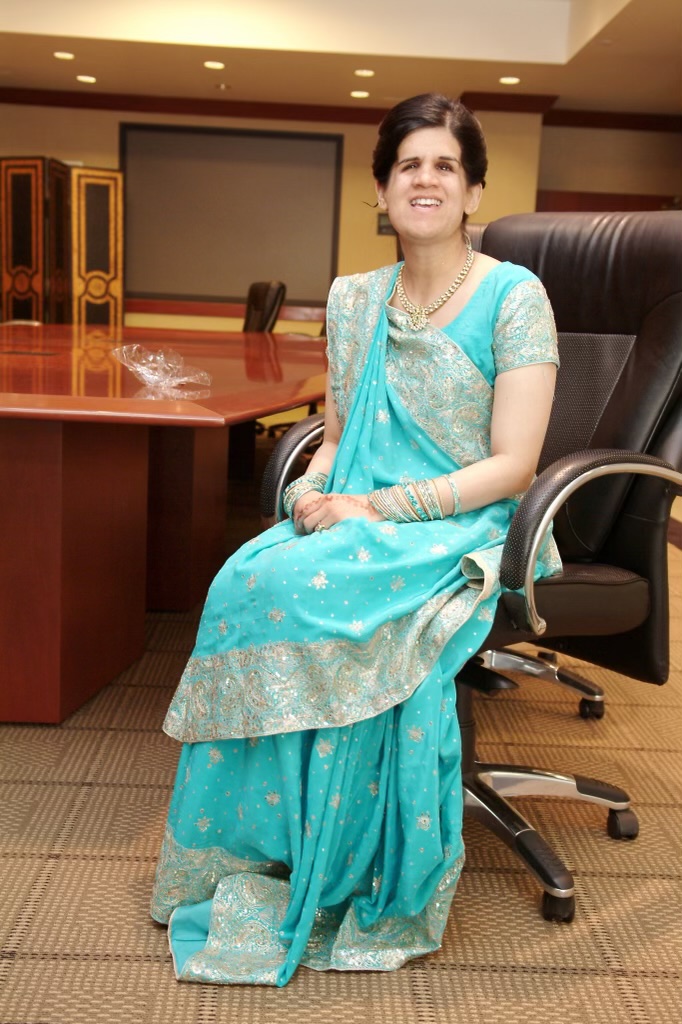
“We had so much fun, and there was so much joy within all the pain and the misery,” Pötzl said. “This kind of love and friendship is a form of resistance. Being happy, despite all of it, it’s radical feminist care. And this is what we did.”
Sejal understood that relationships with people were the most important thing, Rabbi Sarah Brammer-Shlay said. Brammer-Shlay met Sejal through Pötzl, and the two bonded in 2023, during the last few months of Sejal’s time at Grinnell.
“She basically said to me, ‘Hey, I’m really good at keeping in touch with people. So can we keep in touch and become better friends?’” Brammer-Shlay said. “I was like, yes, and she was right.”
One of Brammer-Shlay’s favorite memories is of the three of them watching Taylor Swift’s Eras Tour film during a hailstorm.
“There was a very funny moment where Taylor Swift didn’t play an entire song that she really liked, and Sejal was really irritated that she didn’t play the entire song,” Brammer-Shlay said. “It was one of these lovely days where we were hunkering down, but also experiencing all of the quirks and beauty that is Grinnell.”
With Sejal, friendship wasn’t a passive thing, Brammer-Shlay said. She appreciated the way Sejal gave friendships meaning by putting the work into them.
“She listened for, ‘Well, what is it that is happening for you, and what is it that we can do together?’” said Professor Shuchi Kapila, English.
“I will always remember her sprightly voice. Her voice sounded almost like a leprechaun or something. It just would go up into this upper register, and it’s very hard to be as sullen as I can sometimes be inclined to be when I would hear a voice on the phone,” said former Professor Ralph Savarese, English. “It’s a mark of her.”
The flickering of a hot, new field
Savarese led the subcommittee that brought Sejal to Grinnell. He was struck by her work in sound studies, “the flickering of a hot, new field,” he said.
“There was no doubt that she was a professor, and she was a teacher,” Pötzl said. “It was her dream to teach young people and to do her research. She was one of those clichéd intellectuals – it was most things she wanted to talk about.”
“She was doing a lot of stuff on radio, BBC and India,” Savarese said. “But think about poetry read aloud. I mean, that’s sound studies. Think about meter. Think about all of the claims on the human ear.”
Sejal had a different perspective on what the field of literature could do.
“She was working on global modernisms, which is such a more interesting way of thinking about modernism than just that it originated in Europe,” Kapila said. “She was always somebody who presented multiple perspectives, even on those things we take for granted. The idea of human rights and its definitions work very differently in the global south.”
“She always wanted to be remembered for how she made the world a more tolerant, equal, better place for all of us,” Sutaria Shah said. “I want her to be remembered for just how many students she influenced. She’s played such a hand in the decisions young people that are going to make the world a better place.”
One of Sejal’s students, Maya Larson `22, switched her major from Anthropology to English because of the way Sejal taught.
“I can absolutely say that Sejal helped me see how stories, and the anthropological way of viewing the world and thinking about systems, how they could come together,” Larson said. “How you could look at a story and use that as a way to think about society, and to think about yourself.”
Larson said that Sejal’s English classes felt human to her. The way Sejal was able to understand the complexities of each character also applied to the way that she treated people, Brammer-Shlay said.
“She really taught me was that your voice always matters, even if you’re not confident, even if you feel like your opinions hold no value,” Kripa Bansal `24 said. “She always encouraged people to be bold, to take risks, to say what was on their mind, and never be afraid of how people will perceive them or how people will judge them.”
“She had a really good philosophy of writing,” Lucy Leither `25 said, “Almost like treating writing as a fun puzzle that you’re figuring out through the act of writing, and that it’s not just like you know from the start.”
During class discussions, whenever students trailed off with a, “Well, I’m not sure, I don’t know,” Sejal would respond, “You do know!”
“She was always so good at saying, ‘Oh hey, you haven’t talked today. Do you have anything you want to share?’ I’m sure some students would have been like, ‘Why don’t you just let me be quiet,’” Larson said. “But to me, that was her showing love because she wanted to make sure everybody had the space to express their opinion. She literally made space for them.”
“[She taught me] how to be pragmatic, but also ferocious … You don’t need to make yourself known to be felt. You also know that there’s all this laughter to do, even when things suck,” said Savarese.
A sense of mischief
Sejal, however, still had a sense of mischief.
Somehow, she was the person who gave others fashion advice. While she couldn’t see the colors of clothes, she was quite the fashionista. Although, as Pötzl recalls, a friend of Sejal’s did pull a prank on her.
While Pötzl was waiting outside of Sejal’s door, Sejal came down the stairs wearing “ridiculous” tie-dye pajamas – an outfit completely at odds with her usual style.
“I said, ‘Sejal, do you know what you’re wearing?’” Pötzl said.
“Yeah, it was a present from my friend!” Sejal said.
“We couldn’t stop laughing because it was so hilarious,” Pötzl said.
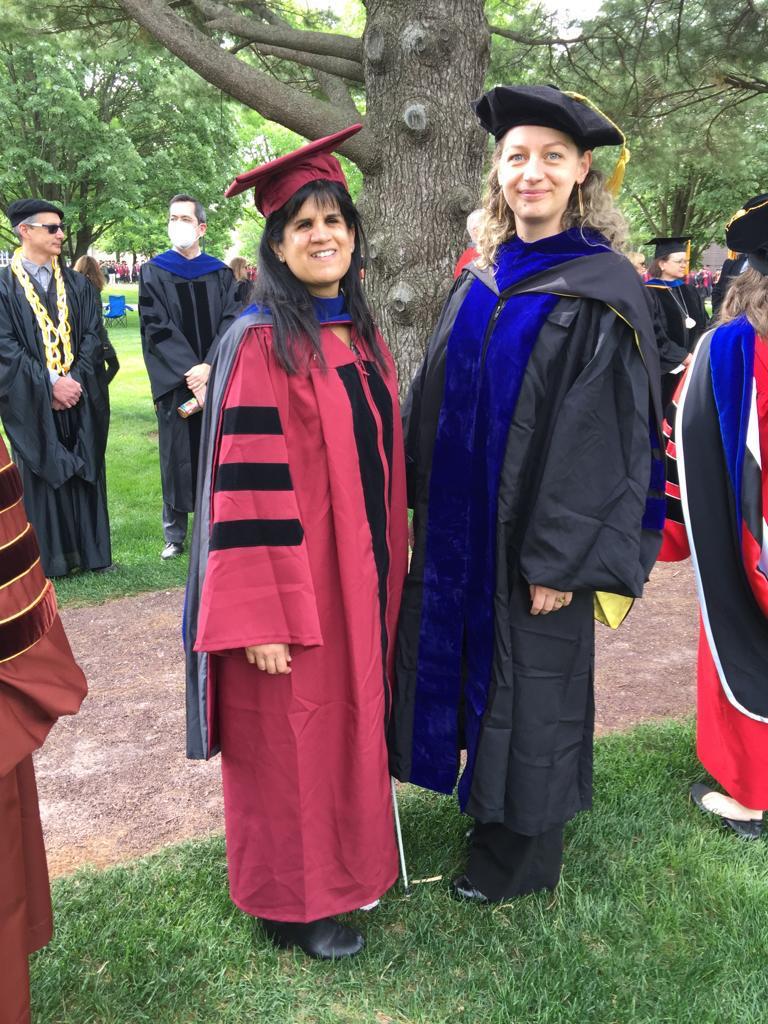
Sejal always had a deep appreciation for beauty and the senses – which meant she also had a fondness for a nice cheese.
Once, while visiting Sejal recovering in a hospital, Brammer-Shlay remembers how she really wanted to eat camembert cheese. After a lengthy investigation, Brammer-Shlay, Pötzl and Sejal enjoyed a “massive, beautiful cheese spread.”
It was the same when Kapila visited Sejal in Iowa City. She had a hankering for pancakes with strawberries.
“She had these things. It was like, ‘Can we do these simple things?’” Kapila said.
“When she had a taste for something, or when she really wanted to do something, it was really important to her to do that,” Brammer-Shlay said.
“She just had endless additional skills,” Larson said. “Halfway through knowing her, I found out she spoke French … Most people who speak French tell you immediately!”
“Sejal could’ve been a concert pianist if she wanted to,” Sutaria Shah said. “She could hear any song and play it on the piano for you.”
She never tied her sense of worthiness to what she wanted to become, or how she made people feel, or even a trait of hers. In an email, Sejal once wrote to me: “You are a bright light and shine just by the virtue of existing. Worth is inherent, innate, and unconditional.”
A guiding light
Even though Sejal is gone, somehow, she’s still connecting us.
Bansal’s classmates checked in on each other after hearing of Sejal’s passing. Although we led parallel lives while we overlapped at Grinnell, Larson and I reconnected through our memories of Sejal.
Sutaria Shah received a handwritten letter from one of Sejal’s students, someone she’d never met before.
“What they said at the end of it was, ‘I just wanted to reach out to you when you were going through such a hard time … because your sister never, ever let me feel alone when I was going through a hard time,” Sutaria Shah said.
But out of all the conversations and memories I’ve shared with everyone over the last couple of days, there’s one that sticks out the most.
On one of Sejal and Pötzl’s walks after the 2020 derecho, they came across a collapsed bridge. The river was a larger one, more of a creek. But they didn’t want to stop walking. Why go back the way they came? Why not go forward?
So, they slowly crossed. Step by step, stone by stone, even though it took them a long time, they made their way across the water. Neither of them fell.
Once across, they were both so proud. One of them said, “Okay, now we can go climb mountains!”
To me, that sounds just like Sejal. It’s a memory that shows her unwavering determination to keep moving forward. In the face of all this sadness, I like to imagine her there — carefully stepping onto the next stone, chatting and laughing all the while, feeling the fresh air on her skin.
Always moving forward.


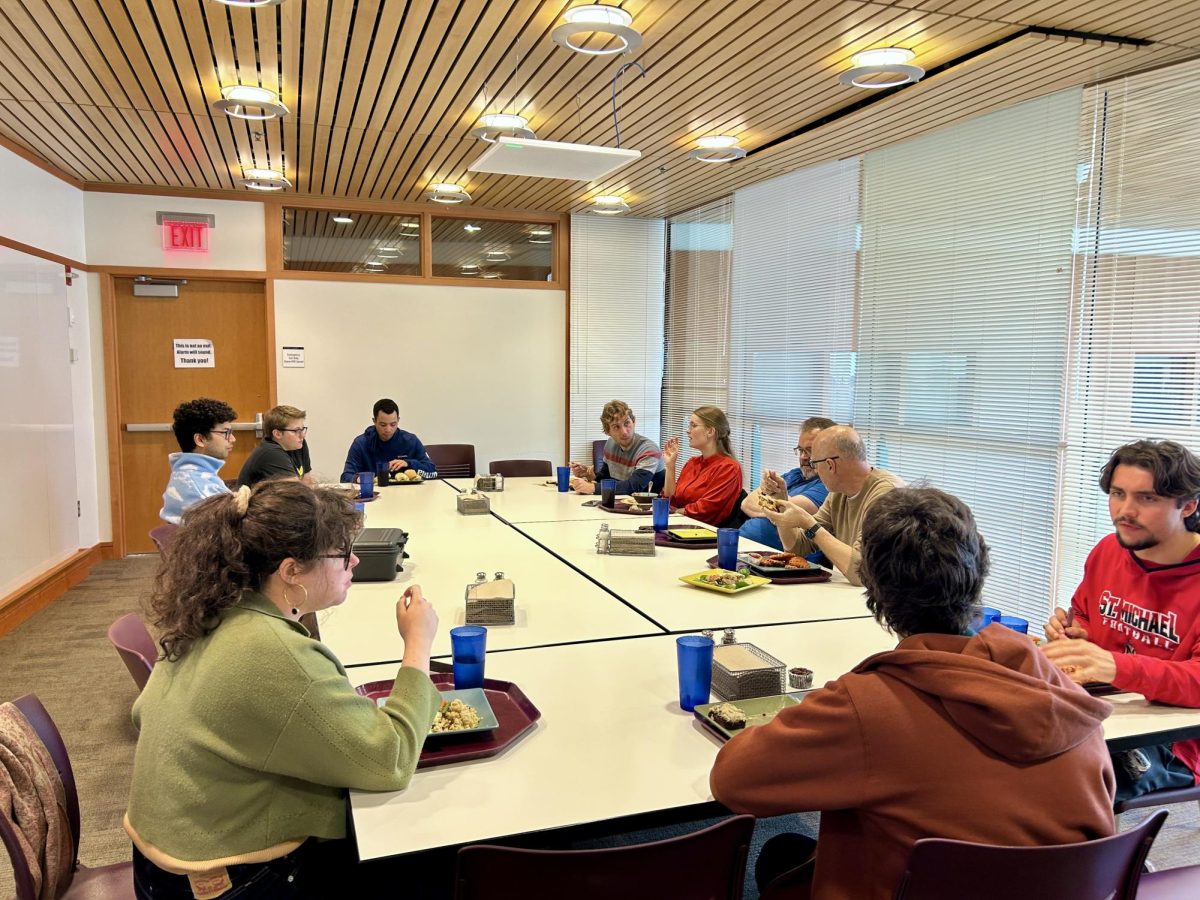
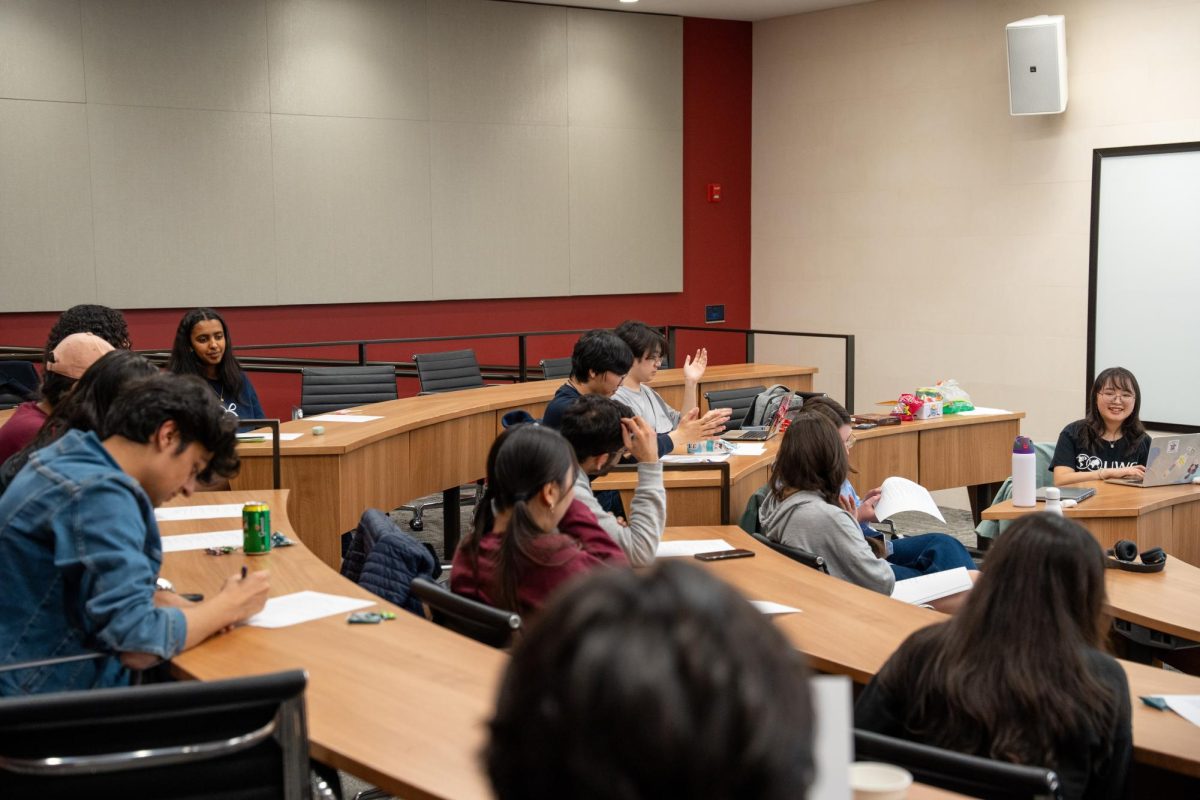
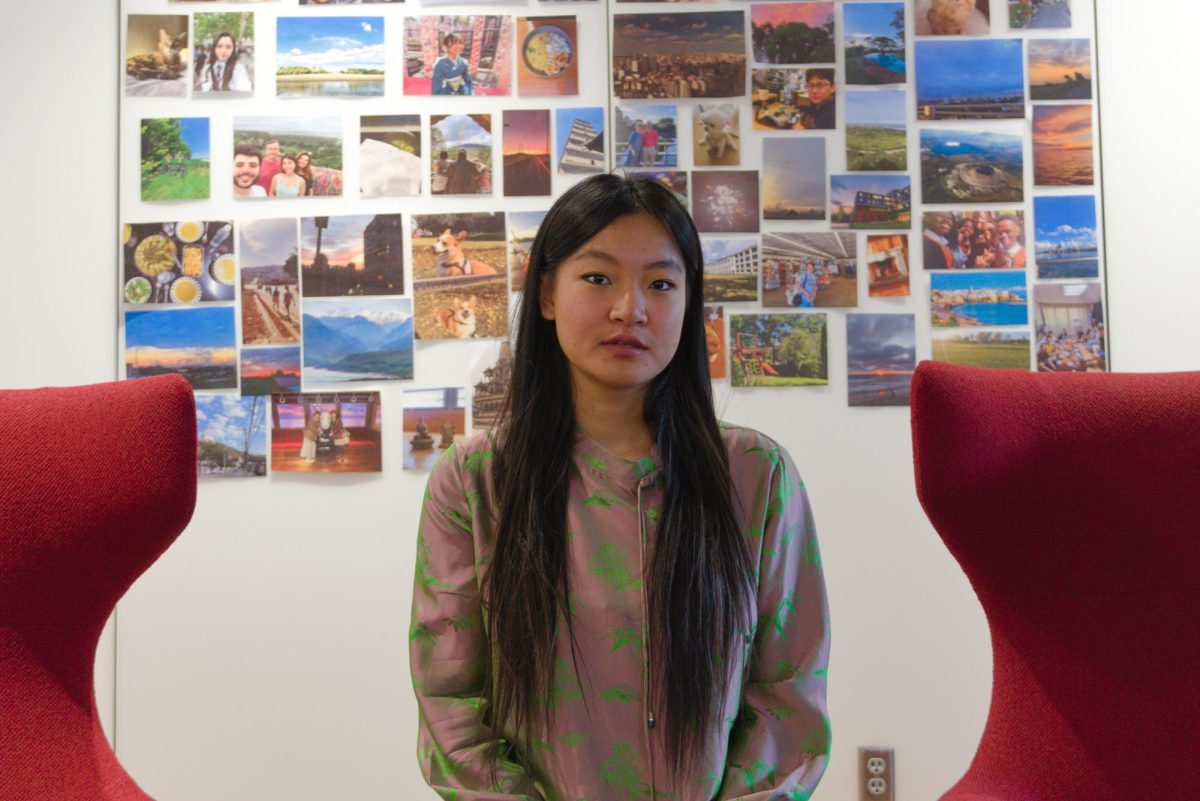
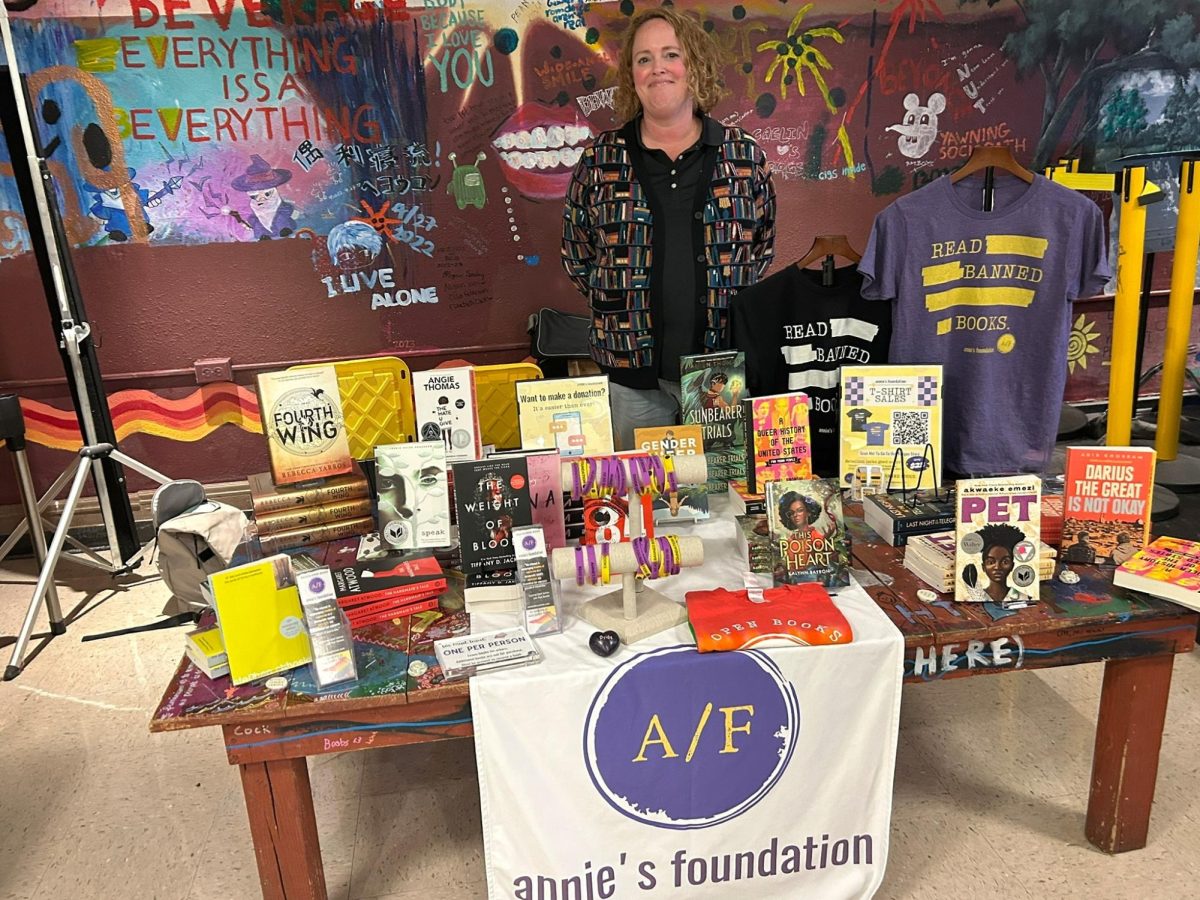
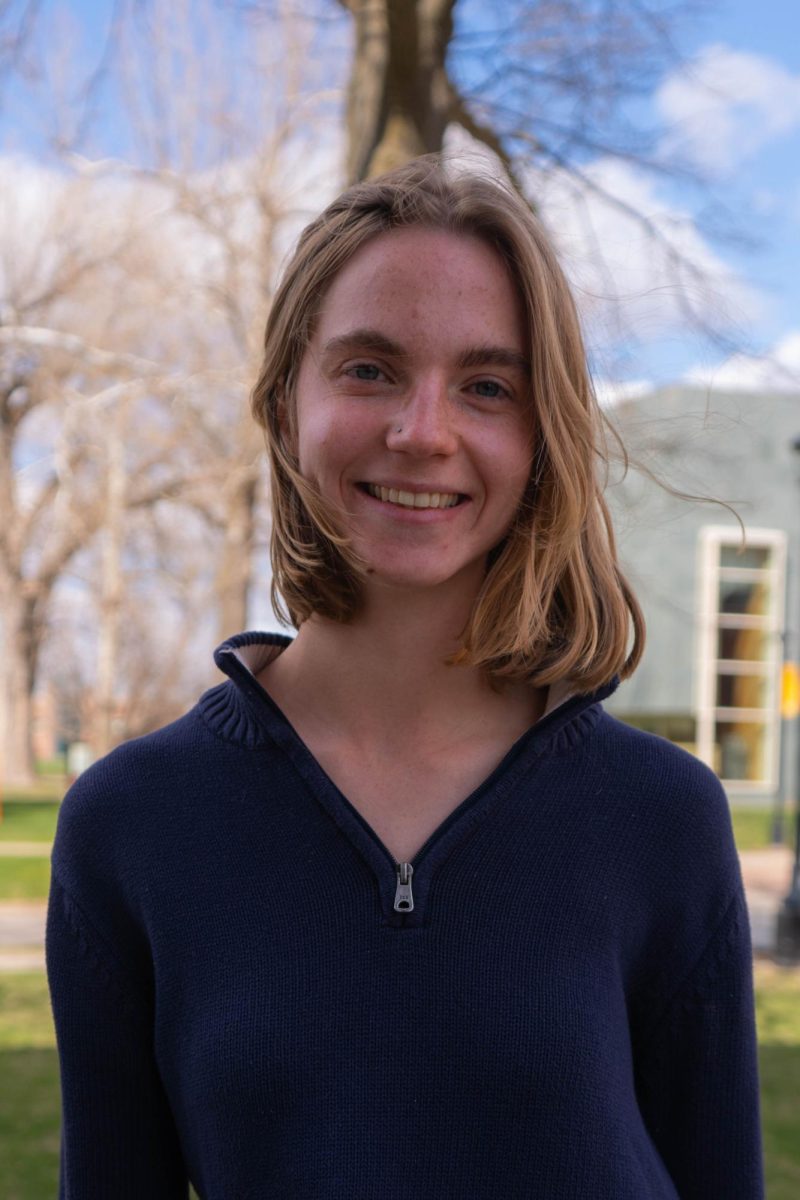
Anu Oli • Apr 10, 2025 at 8:37 am
One of the things I will always remember about Sejal is how we bonded through clothes. As a first-gen student, I was still so intimidated by professors—even into my second year. But seeing her in those, albeit sometimes crazy, prints, sitting next to her every class, and starting it off with what she was wearing made it all so much easier.
She told my class once that she associates colors with each person she interacts with and promised to tell us at the end of the semester. I remember waiting so giddily in line to ask her, and to my shock, she said the exact shade of blue I’ve sworn up and down my entire life looks best on me: somewhere between ultramarine and cerulean blue. I still bring it up to people every time I wear that shade, and I don’t think I’ll ever stop thinking of her when I do.
Thank you so much for this beautiful tribute, I hope we can all carry on a little bit more of curiosity and kindness on Sejal’s behalf.